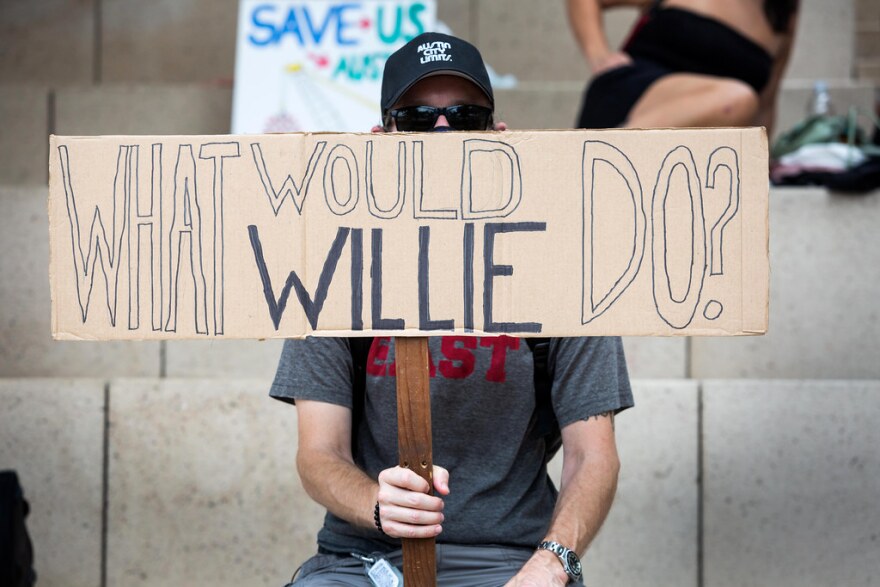Austin's music venues were among the first businesses to close because of COVID-19, and because their business model relies on mass gatherings, they'll likely be the last to reopen.
City leaders unanimously OK'd a preliminary plan Thursday to find city money to prop up ailing venues, bars, production companies and restaurants at risk of shutting down permanently because of the pandemic.
City Council members heard hours of testimony in favor of the Save Austin's Vital Economic Sectors, or SAVES, resolution. It directs city staff to find ways to divert surpluses to venues, as well as to seek out state and federal relief money, in addition to child care providers that have been impacted by COVID-19.
RELATED | What Happens When The Live Music Capital Of The World Goes Silent? Introducing 'Pause/Play'
Ahead of the vote, venue owners and musicians lauded the measure by council, but also took the city to task for gaps in what they called substantial aid. While the city has set aside money to support individual musicians, venues were left competing with other small businesses in the scramble for federal relief.
Nakia Reynoso with the nonprofit Austin Texas Musicians said many venues need a fund solely dedicated to live music.
"Our music venues are out of time. Please, do the right thing. Create a dedicated live music venue preservation fund now to make sure those venues that have managed to hang on for this long still have a chance," he said. "Musicians need a place to play when the lights come back on."
While the resolution singles out venues and production companies specifically, it also allows aid to go toward child care providers, and those within the live music community have called for an independent pot of money dedicated solely to venues and bars that host Austin's live music scene.
Gwendolyn Seale, an Austin entertainment lawyer, said she supported the resolution, but hopes the city reconsiders its process of doling out money.
She argued the city's partnership with the Better Business Bureau to pass out federal relief money earlier this summer was a mistake and that the company known largely for its business accreditation wasn't equipped to distribute the money.
"The city failed its venues – and the overall music community – when it partnered with the Better Business Bureau, a company with no grant-administration experience," she said.
Seale said she hopes the city will partner with a local entity to distribute whatever relief comes from the resolution.
Council hopes to bypass a third-party broker by creating a development corporation – an idea that's been bandied about for the better part of a year.
The corporation would distribute the money that will ultimately be siphoned from surpluses in hotel occupancy and sales tax revenue and from diverted street-use fees paid to the city by construction projects. It could be created as soon as Oct. 1.
City staff will report back on other possibilities for extra money to help venues by no later than Sept. 29.
Shortly before the vote, District 7 Council Member Leslie Pool said she hoped the city funding would be able to come online quickly, as efforts to secure federal funding have stalled out in Congress.
Pool added that estimates have put the dollar amount for necessary relief at anywhere from $10 million to $75 million. She said she believes the need is north of $75 million and that as many as 1,500 businesses and organizations will likely need some relief to brave the pandemic.
"That is a legitimate assessment of the scope of the need," she said.
A study out earlier this summer suggested 90% of venues could shutter because of the pandemic.
Correction: An earlier version of this story incorrectly said the Better Business Bureau was a for-profit company. It also incorrectly said Austin Texas Musicians was formed in the wake of the pandemic.
Got a tip? Email Andrew Weber at aweber@kut.org. Follow him on Twitter @England_Weber.
If you found the reporting above valuable, please consider making a donation to support it. Your gift pays for everything you find on KUT.org. Thanks for donating today.





